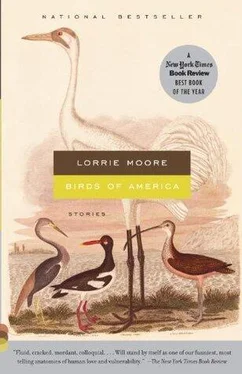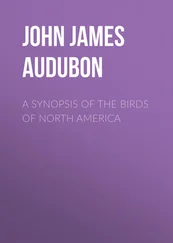“What are you doing?” Adrienne asked Ilke the next afternoon. The lamps were particularly low, though there was a spotlight directed onto a picture of Ilke’s mother, which she had placed on an end table, for the month, in honor of Mother’s Day. The mother looked ghostly, like a sacrifice. What if Ilke were truly a witch? What if fluids and hairs and nails were being collected as offerings in memory of her mother?
“I’m fluffing your aura,” she said. “It is very dark today, burned down to a shadowy rim.” She was manipulating Adrienne’s toes, and Adrienne suddenly had a horror-movie vision of Ilke with jars of collected toe juice in a closet for Satan, who, it would be revealed, was Ilke’s mother. Perhaps Ilke would lean over suddenly and bite Adrienne’s shoulder, drink her blood. How could Adrienne control these thoughts? She felt her aura fluff like the fur of a screeching cat. She imagined herself, for the first time, never coming here again. Good-bye. Farewell . It would be a brief affair, a little nothing; a chat on the porch at a party.
· · ·
Fortunately, there were other things to keep Adrienne busy.
She had begun spray-painting the spiders, and the results were interesting. She could see herself explaining to a dealer back home that the work represented the spider web of solitude — a vibration at the periphery reverberates inward (experiential, deafening) and the spider rushes out from the center to devour the gonger and the gong. Gone. She could see the dealer taking her phone number and writing it down on an extremely loose scrap of paper.
And there was the occasional after-dinner singsong, scholars and spouses gathered around the piano in various states of inebriation and forgetfulness. “Okay, that may be how you learned it, Harold, but that’s not how it goes.”
There was also the Asparagus Festival, which, at Carlo’s suggestion, she and Kate Spalding, in one of her T-shirts— all right, already with the T-shirts, Kate —decided to attend. They took a hydrofoil across the lake and climbed a steep road up toward a church square. The road was long and tiring and Adrienne began to refer to it as the “Asparagus Death Walk.”
“Maybe there isn’t really a festival,” she suggested, gasping for breath, but Kate kept walking, ahead of her.
“Go for the burn!” said Kate, who liked exercise too much.
Adrienne sighed. Up until last year, she had always thought people were saying “Go for the bird .” Now off in the trees was the ratchety cheep of some, along with the competing hourly chimes of two churches, followed later by the single off-tone of the half hour. When she and Kate finally reached the Asparagus Festival, it turned out to be only a little ceremony where a few people bid very high prices for clutches of asparagus described as “bello, bello,” the proceeds from which went to the local church.
“I used to grow asparagus,” said Kate on their walk back down. They were taking a different route this time, and the lake and its ocher villages spread out before them, peaceful and far away. Along the road, wildflowers grew in a pallet of pastels, like soaps.
“I could never grow asparagus,” said Adrienne. As a child, her favorite food had been “asparagus with holiday sauce.”
“I did grow a carrot once, though. But it was so small, I just put it in a scrapbook.”
“Are you still seeing Ilke?”
“This week, at any rate. How about you?”
“She’s booked solid. I couldn’t get another appointment. All the scholars, you know, are paying her regular visits.”
“Really?”
“Oh, yes,” said Kate very knowingly. “They’re tense as dimes.” Already Adrienne could smell the fumes of the Fiats and the ferries and delivery vans, the Asparagus Festival far away.
“Tense as dimes?”
Back at the villa, Adrienne waited for Martin, and when he came in, smelling of sandalwood, all the little deaths in her bones told her this: he was seeing the masseuse.
She sniffed the sweet parabola of his neck and stepped back. “I want to know how long you’ve been getting massages. Don’t lie to me,” she said slowly, her voice hard as a spike. Anxiety shrank his face: his mouth caved in, his eyes grew beady and scared.
“What makes you think I’ve been getting—” he started to say. “Well, just once or twice.”
She leapt away from him and began pacing furiously about the room, touching the furniture, not looking at him. “How could you?” she asked. “You know what my going there has meant to me! How could you not tell me?” She picked up a book on the dressing table— Industrial Relations Systems —and slammed it back down. “How could you horn in on this experience? How could you be so furtive and untruthful?”
“I am terribly sorry,” he said.
“Yeah, well, so am I,” said Adrienne. “And when we get home, I want a divorce.” She could see it now, the empty apartment, the bad eggplant parmigiana, all the Halloweens she would answer the doorbell, a boozy divorcée frightening the little children with too much enthusiasm for their costumes. “I feel so fucking dishonored !” Nothing around her seemed able to hold steady; nothing held.
Martin was silent and she was silent and then he began to speak, in a beseeching way, there it was the beseech again, rumbling at the edge of her life like a truck. “We are both so lonely here,” he said. “But I have only been waiting for you. That is all I have done for the last eight months. To try not to let things intrude, to let you take your time, to make sure you ate something, to buy the goddamn Spearsons a new picnic bench, to bring you to a place where anything at all might happen, where you might even leave me, but at least come back into life at last—”
“You did?”
“Did what?”
“You bought the Spearsons a new picnic bench ?”
“Yes, I did.”
She thought about this. “Didn’t they think you were being hostile?”
“Oh … I think, yes, they probably thought it was hostile.”
And the more Adrienne thought about it, about the poor bereaved Spearsons, and about Martin and all the ways he tried to show her he was on her side, whatever that meant, how it was both the hope and shame of him that he was always doing his best, the more she felt foolish, deprived of reasons. Her rage flapped awkwardly away like a duck. She felt as she had when her cold, fierce parents had at last grown sick and old, stick-boned and saggy, protected by infirmity the way cuteness protected a baby, or should, it should protect a baby, and she had been left with her rage — vestigial girlhood rage — inappropriate and intact. She would hug her parents good-bye, the gentle, emptied sacks of them, and think Where did you go?
Time, Adrienne thought. What a racket.
Martin had suddenly begun to cry. He sat at the bed’s edge and curled inward, his soft, furry face in his great hard hands, his head falling downward into the bright plaid of his shirt.
She felt dizzy and turned away, toward the window. A fog had drifted in, and in the evening light the sky and the lake seemed a singular blue, like a Monet. “I’ve never seen you cry,” she said.
“Well, I cry,” he said. “I can even cry at the sports page if the games are too close. Look at me, Adrienne. You never really look at me.”
But she could only continue to stare out the window, touching her fingers to the shutters and frame. She felt far away, as if she were back home, walking through the neighborhood at dinnertime: when the cats sounded like babies and the babies sounded like birds, and the fathers were home from work, their children in their arms gumming the language, air shaping their flowery throats into a park of singing. Through the windows wafted the smell of cooking food.
Читать дальше












